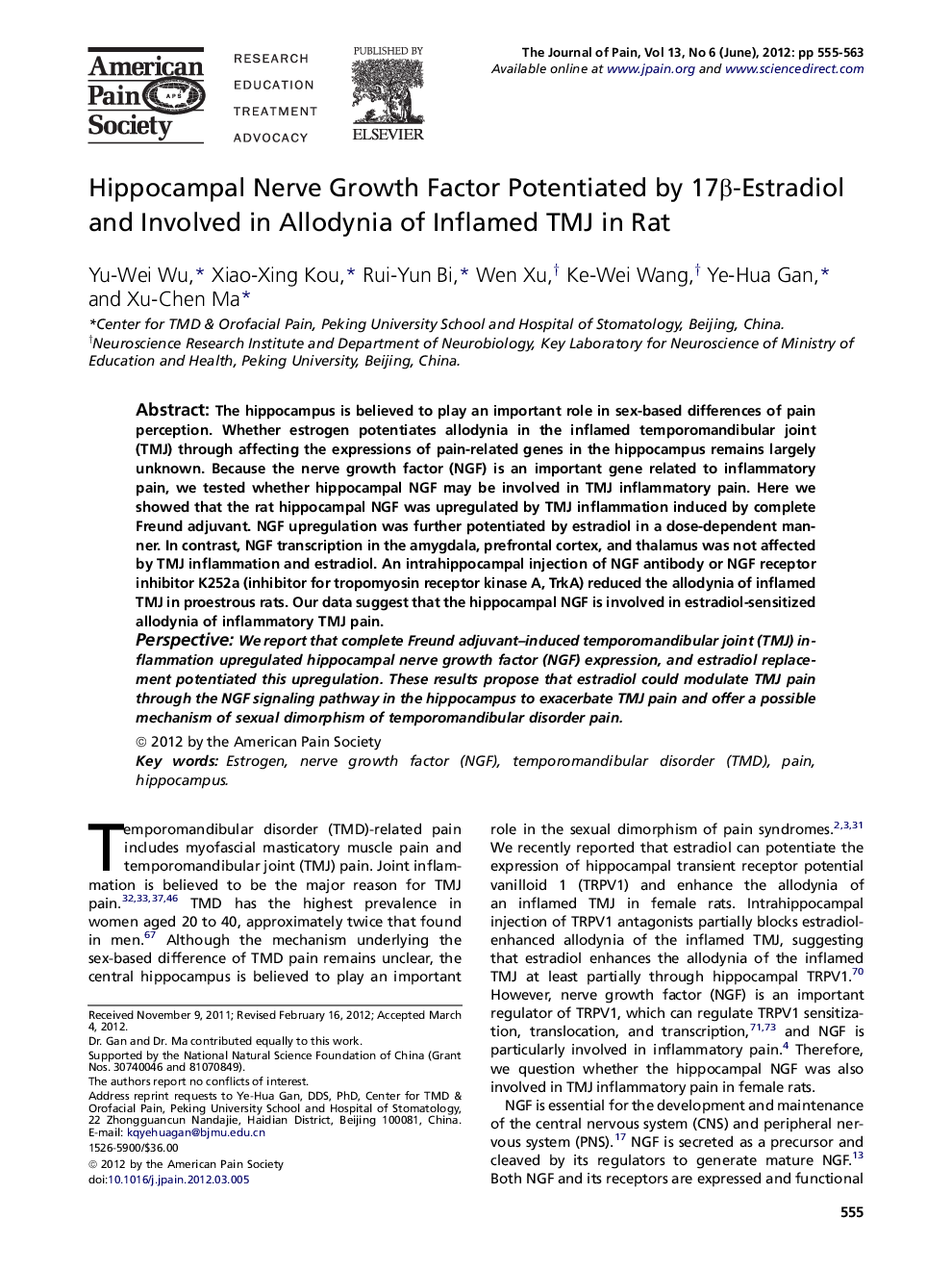| Article ID | Journal | Published Year | Pages | File Type |
|---|---|---|---|---|
| 2728854 | The Journal of Pain | 2012 | 9 Pages |
The hippocampus is believed to play an important role in sex-based differences of pain perception. Whether estrogen potentiates allodynia in the inflamed temporomandibular joint (TMJ) through affecting the expressions of pain-related genes in the hippocampus remains largely unknown. Because the nerve growth factor (NGF) is an important gene related to inflammatory pain, we tested whether hippocampal NGF may be involved in TMJ inflammatory pain. Here we showed that the rat hippocampal NGF was upregulated by TMJ inflammation induced by complete Freund adjuvant. NGF upregulation was further potentiated by estradiol in a dose-dependent manner. In contrast, NGF transcription in the amygdala, prefrontal cortex, and thalamus was not affected by TMJ inflammation and estradiol. An intrahippocampal injection of NGF antibody or NGF receptor inhibitor K252a (inhibitor for tropomyosin receptor kinase A, TrkA) reduced the allodynia of inflamed TMJ in proestrous rats. Our data suggest that the hippocampal NGF is involved in estradiol-sensitized allodynia of inflammatory TMJ pain.PerspectiveWe report that complete Freund adjuvant–induced temporomandibular joint (TMJ) inflammation upregulated hippocampal nerve growth factor (NGF) expression, and estradiol replacement potentiated this upregulation. These results propose that estradiol could modulate TMJ pain through the NGF signaling pathway in the hippocampus to exacerbate TMJ pain and offer a possible mechanism of sexual dimorphism of temporomandibular disorder pain.
